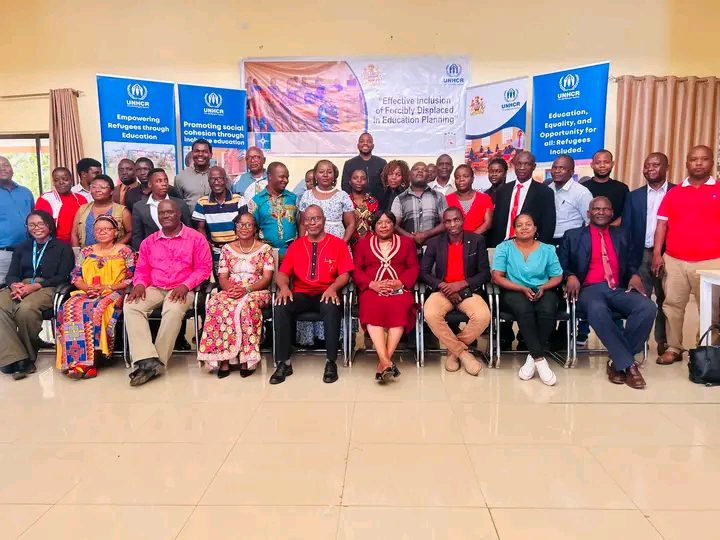
MOHDEVS AND UNHCR CALLS FOR INCLUSIVE EDUCATION FOR REFUGEES
The Executive Director for Moravian humanitarian and development services (Mohdevs), Jonah Sinyangwe, has expressed optimism that the country will soon develop a proper legal framework to promote inclusive education for refugee children.
Speaking on the sidelines of an interface meeting with chiefs from villages surrounding Dzaleka refugee camp, Dzaleka refugee camp community leaders and education authorities in Dowa, Sinyangwe indicated that they called for the meeting to get the stakeholders’ perspective on including the refugee community in the national planning.
“We want to appreciate the positives and challenges of accommodating the refugee children in schools found around the camp from the community leaders and we will escalate it to the district level and ministry level to have an insight on the best practice of inclusive education with refugee children,” explained Sinyangwe.
He further commended the Malawi government for the positive strides made in promoting the inclusion of refugees in national planning ( education sector).
Sinyangwe said, “In practice, refugees are now accessing pre-school, primary, and tertiary education in the country. Do they see problems being brought by the presence of these refugee children and where do they feel needs improvement?”
“What strategies have to be applied to formalize the practice of allowing the refugee children to feel like they are part and parcel of the education system in Malawi?”
The Republic of Malawi signed the 1951 Convention on the Rights of Refugees in 1989, with nine reservations that impact refugee access to education, livelihoods, and integration.
Among these reservations is Article 26 which Restricts refugees’ freedom of movement, confining them to camps and limiting access to education and livelihood opportunities. Restricting refugees’ freedom of movement, confining them to camps, and limiting access to education and livelihood opportunities.
However, Malawi’s Constitution, Education Act, and international commitments promote access to education for all, but the reservations hinder refugee inclusion.
Priscilla Kalumo the United Nations High Commission for Refugees (UNHCR) Associate Education Officer says that though refugee children do have access to Public education in schools around the camp there are legal limitations as there is an expectation that refugees should access all social amenities in the camp.
She says the current situation of demand and supply of social services do not align as the camp was designed to accommodate 10 to 12 thousand refugees but currently, the camp hosts about 56 thousand refugees and 55 % of this population are school-going children.
“The facilities that are in the camp are no longer adequate to support 56 thousand people and the restriction of saying some of the services are not available to refugees makes it difficult for the camp’s population,” said Kalumo.
She revealed that in 2023, the Malawi government and the United Nations High Commission for Refugees (UNHCR) signed a memorandum of understanding to be more involved in refugee education.
“The MoU aims to have the Ministry of Education lead in the provision of education services in the camp unlike in the past where refugee education was more of a privatized,” explained Kalumo.
Charles Muthothe Acting Education Division Manager for the Central East Division acknowledged that the government is in the process of adopting two primary schools and a secondary located in the camp after the signing of the MoU between the government and UNHCR.
On the provision of education to refugee children outside of the camp, Muthothe indicated that it will need relevant authorities to amend the laws that govern the refugee affairs management to change the current status quo.
Muthothe said, “We are guided by policies, constitution, and the convention that Malawi ratified for refugee affairs management unless the laws are amended to address the current challenges.”
Hilda Kausiwa senior Administrative and Operations Manager in the Department for Refugees under the Ministry of Homeland Security described Education as a fundamental right and the bedrock of personal and community development, fostering cohesion, resilience, and productivity.
She conceded that the country’s current frameworks are not fully inclusive of the refugees who seek a fresh start in Malawi.
“By discussing these issues openly, we can devise solutions that make inclusivity possible. The Government remains committed to hosting refugees, improving their welfare, and also promoting the peaceful existence between the refugees and the host community,” explained Kausiwa.
